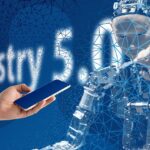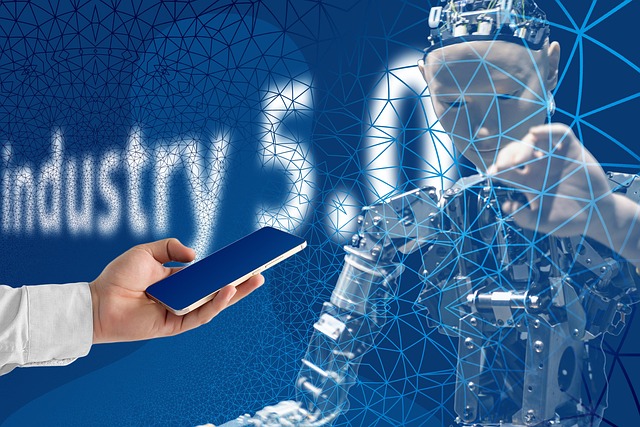# The Future of AI Technology: How Intelligent Systems Are Redefining Our Everyday Lives
Artificial Intelligence (AI) has transitioned from a niche technology to a cornerstone of modern society. As intelligent systems become increasingly integrated into our daily routines, they are reshaping how we interact with the world. This article explores the transformative impact of AI on various aspects of life, including personal productivity, healthcare, and transportation, while also considering the ethical implications of these advancements.
## Revolutionizing Personal Productivity
In recent years, AI has emerged as a powerful tool for enhancing personal productivity. Intelligent systems are now capable of performing tasks that once required human intervention, allowing individuals to focus on more strategic activities. For instance, AI-driven virtual assistants, such as Siri and Google Assistant, have streamlined the way we manage our schedules, set reminders, and retrieve information. These tools utilize natural language processing to understand user commands, making everyday tasks more efficient.
Moreover, AI algorithms analyze user behavior to provide personalized recommendations. From suggesting the next show to binge-watch on streaming platforms to curating playlists based on listening habits, these systems learn and adapt to individual preferences. This level of customization not only saves time but also enhances the overall user experience. As AI continues to evolve, we can expect even greater integration into our work environments, with tools that anticipate our needs and optimize our workflows.
Shifting focus to the workplace, AI technologies are also redefining how businesses operate. Automation of repetitive tasks—such as data entry, customer service inquiries, and inventory management—allows employees to concentrate on higher-value work. For example, chatbots equipped with AI can handle a myriad of customer queries, providing instant responses and freeing up human agents for more complex issues. This transformation leads to increased efficiency and improved job satisfaction, as employees engage in more meaningful tasks.
## Transforming Healthcare Delivery
The healthcare sector stands at the forefront of AI innovation, where intelligent systems are making significant strides in improving patient outcomes. Machine learning algorithms analyze vast amounts of medical data to assist in diagnosing diseases, predicting patient risks, and personalizing treatment plans. These advancements are not only enhancing the accuracy of diagnoses but also enabling healthcare providers to deliver more precise and effective care.
One notable application of AI in healthcare is in medical imaging. Radiology, for instance, has benefited immensely from AI technologies that can detect anomalies in X-rays, MRIs, and CT scans with remarkable accuracy. By augmenting the capabilities of radiologists, AI reduces the likelihood of human error and expedites the diagnostic process. As a result, patients receive timely interventions that can significantly improve their prognoses.
Additionally, AI is revolutionizing drug discovery and development. Traditional methods of creating new medications can be lengthy and costly, often taking years to bring a product to market. However, AI accelerates this process by simulating how different compounds interact with biological systems, identifying potential candidates for further testing. This not only shortens the timeline for drug development but also increases the likelihood of successful outcomes, ultimately benefiting patients in need of new therapies.
## Redefining Transportation and Mobility
Transportation is another domain experiencing profound changes due to AI technology. Autonomous vehicles have become a focal point of innovation, promising to transform how we commute and transport goods. Companies like Tesla, Waymo, and others are investing heavily in self-driving technology, which utilizes AI to navigate roads, recognize obstacles, and make real-time decisions. The potential benefits of this technology are vast, including reduced traffic accidents, increased efficiency, and lower emissions.
As cities evolve, AI is also playing a crucial role in optimizing traffic management systems. Intelligent traffic lights and smart infrastructure can analyze real-time data from vehicles and pedestrians, adjusting signals to minimize congestion and enhance safety. This integration of AI into urban planning not only improves the flow of traffic but also contributes to more sustainable transportation solutions.
Furthermore, ride-sharing services like Uber and Lyft leverage AI algorithms to match riders with drivers efficiently. These platforms analyze patterns in user behavior to predict demand and optimize routes, significantly reducing wait times and enhancing user satisfaction. As these technologies continue to advance, we can anticipate a future where mobility is seamless, efficient, and accessible to all.
## Ethical Considerations and Future Prospects
While the benefits of AI technology are undeniable, it is essential to address the ethical considerations that accompany its rapid advancement. Issues such as data privacy, algorithmic bias, and the potential for job displacement require careful examination. As intelligent systems learn from vast datasets, they may inadvertently perpetuate existing biases, leading to unfair outcomes in areas such as hiring or law enforcement. Ensuring that AI systems are transparent and equitable is paramount to fostering public trust and acceptance.
Looking ahead, the future of AI technology holds immense promise. As research and development continue, we can expect breakthroughs that further enhance our lives. The integration of AI with other emerging technologies, such as blockchain and the Internet of Things (IoT), will create new opportunities for innovation across various sectors. For instance, smart homes equipped with AI can optimize energy consumption, enhance security, and improve overall quality of life.
In conclusion, intelligent systems are redefining our everyday lives in profound ways. From enhancing personal productivity and transforming healthcare delivery to revolutionizing transportation, AI is becoming an integral part of our society. As we navigate this rapidly evolving landscape, it is crucial to balance innovation with ethical considerations, ensuring that AI technology serves as a force for good. Embracing these advancements while remaining vigilant about their implications will pave the way for a future where AI enhances human potential and enriches our daily experiences.











